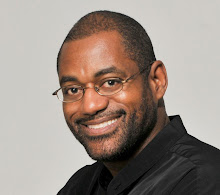Hope the new year has started full of love, joy, and peace. And if for some reason this is not the case for you, let's take it as another opportunity to practice true forgiveness.
What is this thing called true forgiveness?
Somewhat similar to the teachings of Buddhism, true forgiveness recognizes that this so called game of life is truly played out in the mind and that the body experiences we seem to have are the results of our thinking. Why is this recognition so vitally important?
Imagine a doctor who had a patient who suffered from ulcers in the stomach who just treated the ulcers without talking with her patient about the mind activities (e.g., worries and stresses) that were creating the condition. The medical profession recognizes the power the mind plays in illness. Science also recognizes the power the mind plays in healing. When testing new medicines, scientists know that they have to have two groups, one group gets the new pill, another group gets a fake pill. Why? Because some people will get well simply because they believe they are taking medicine. Science recognizes the placebo effect - healing can take place simply as a result of a mind believing - so they have to control for this when testing potential medicines.
In this same way, true forgiveness, which recognizes the power of the mind, is based on just a few key ideas.
1. God is all there is and there is nothing else.
2. God is perfect love, always has been, always will be, and God never changes.
3. Everything that comes from God is exactly like God - perfect love, never changing.
4. We, who really come from God, are therefore exactly like God - perfect love, never changing.
5. Anything that we perceive that is not like God - anything that is not perfect love, anything that changes - is our own dream that is blocking our awareness of perfect love and seemingly creating a situation in which we appear to be separate from God.
6. Like the dreams we have while perfectly home in our beds, we are the creators of this dream we seem to live in, while perfectly home in God.
7. It is our judgments and our beliefs that give power to the dream and give strength to the belief that we are separate from God.
8. By recognizing ourselves as the creator of the dream, not the victims of it, we withdraw power from the dream we created and place ourselves in the position of true forgiveness: seeing God and only God, joining not judging, loving not fearing, trusting not condemning, accepting not fixing.
9. As we become the conditions of heaven - love, joy, peace - we join with God and our memory of our true home - heaven - becomes our experience.
10. Each day we practicing joining with God, remembering our home, recognizing our dream, removing judgment, and letting love flow through us. Each day, we ask the Holy Spirit to help us practice the conditions of heaven - love, joy, peace - by remembering that we are the author of the dream and choosing love not judgment.
In Joy,
Michael
Wednesday, March 26, 2008
Subscribe to:
Comments (Atom)
